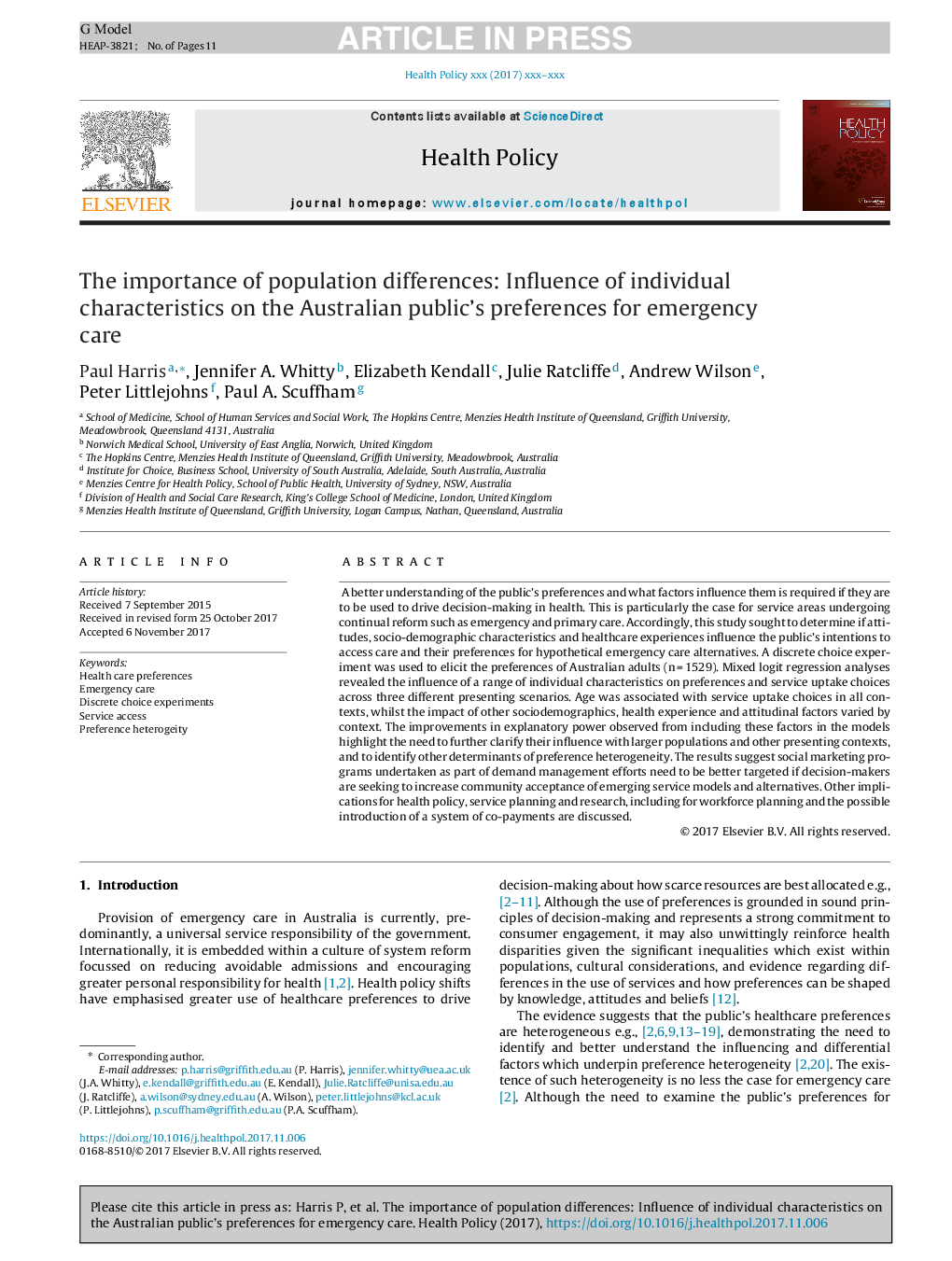ترجمه فارسی عنوان مقاله
اهمیت تفاوت های جمعیتی: تأثیر ویژگی های فردی بر خصوصیات عمومی استرالیا برای مراقبت های اضطراری
عنوان انگلیسی
The importance of population differences: Influence of individual characteristics on the Australian publicâs preferences for emergency care
| کد مقاله | سال انتشار | تعداد صفحات مقاله انگلیسی |
|---|---|---|
| 85691 | 2018 | 11 صفحه PDF |
منبع

Publisher : Elsevier - Science Direct (الزویر - ساینس دایرکت)
Journal : Health Policy, Volume 122, Issue 2, February 2018, Pages 115-125
ترجمه کلمات کلیدی
ترجیحات مراقبت های بهداشتی، مراقبت های اضطراری، آزمایش های انتخابی گسسته، دسترسی به خدمات، ترجیح ناهمگونی،
کلمات کلیدی انگلیسی
Health care preferences; Emergency care; Discrete choice experiments; Service access; Preference heterogeity;

